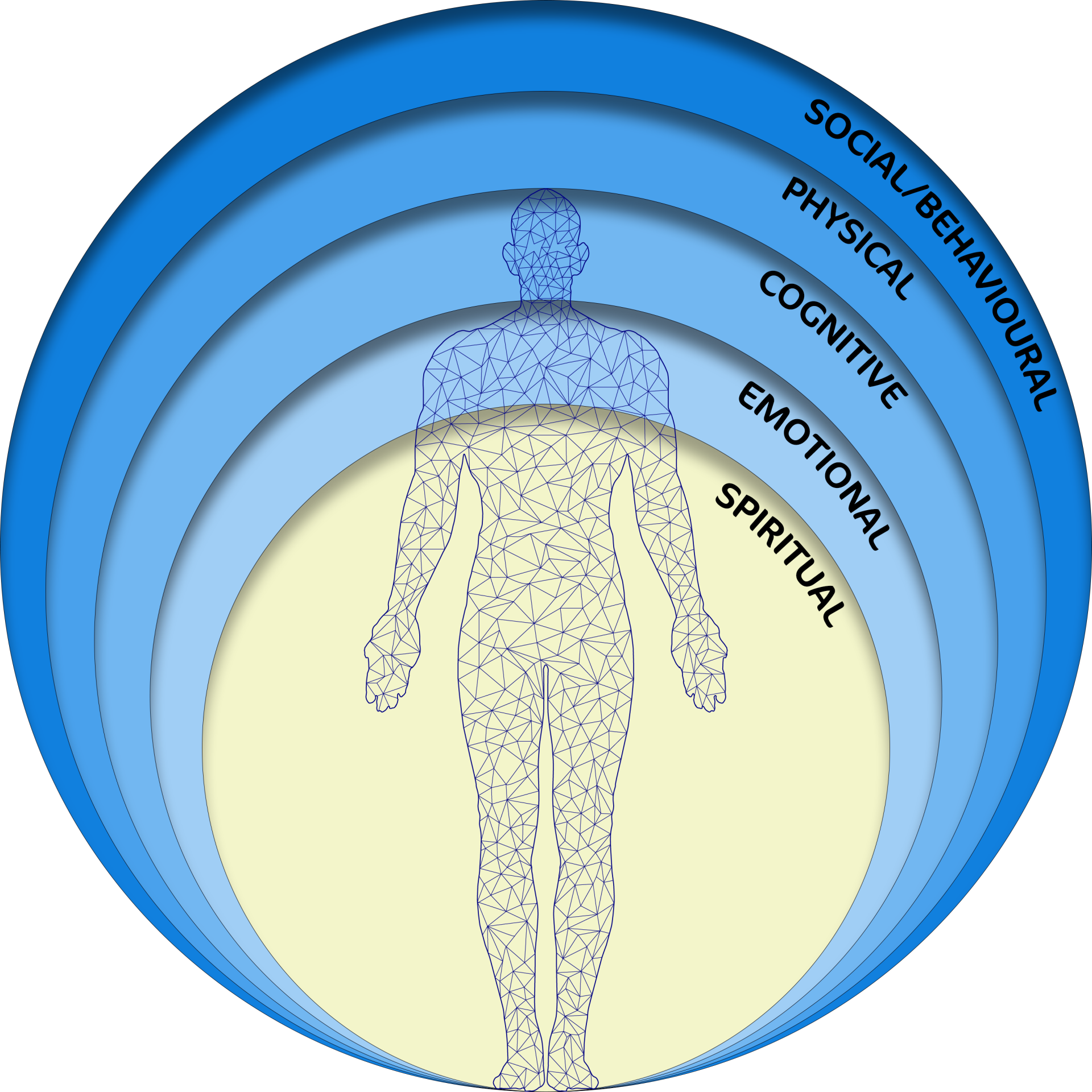Understanding PTSD and c-PTSD
Post-Traumatic Stress Disorder (PTSD) and Complex PTSD (c-PTSD) are collections of intense symptoms that signal unresolved trauma. PTSD is often associated with single-event traumas, such as a violent attack or a natural disaster. In contrast, c-PTSD results from prolonged exposure to traumatic situations, like long-term childhood abuse, including sexual abuse, neglect, or abandonment, or domestic violence. Both conditions can lead to persistent, disturbing thoughts and feelings related to the traumatic events long after they have ended, indicating that the underlying trauma has never been properly addressed.
Impact on Individual Lives
PTSD and c-PTSD profoundly affect your life, leading to a range of debilitating symptoms. Common symptoms include flashbacks, severe anxiety, uncontrollable thoughts about the trauma, and emotional numbness. These symptoms can make daily functioning difficult, strain relationships, and significantly decrease the quality of life. The impact is not just psychological but can also manifest physically through sleep disturbances, fatigue, and other stress-related health issues. Without proper intervention, these conditions can lead to increased isolation, substance abuse, and the development of additional mental health disorders such as depression and anxiety, trapping you in a cycle of despair that affects not only yourself but also those around you.
Pathways to Healing
Resolving trauma is crucial for alleviating the symptoms of PTSD and c-PTSD. While medication and coping strategies can provide temporary relief, they do not address the root cause of the trauma. Controlling symptoms alone is insufficient; true healing requires addressing the trauma directly. A comprehensive approach that involves physical, emotional, cognitive, social, and spiritual elements is necessary for effective recovery. The FLW Method offers such an approach, providing a meticulously designed system that equips individuals with the tools to resolve their trauma. This comprehensive method ensures that no aspect of a person is ignored, paving the way for genuine healing and recovery. If you have found other therapies inadequate, this approach may offer hope and a path to reclaiming your life you have been looking for.
How FLW Method Helps with PTSD and c-PTSD
Resolving Past Traumas
The FLW Method offers a unique approach of dealing with PTSD and c-PTSD that leads directly to healing. There is no symptom control in the method – once you have addressed your past wounds, symptom control is not necessary.
Creating Personal Trauma-Resolution Tools
There is nothing standardized about the FLW Method! You will be guided step by step in building your own, unique trauma-resolution tools that are exclusive to you. Applying these tools will allow you to address your past traumatic experiences with extraordinary precision.
Healing Without Directly Reliving Trauma
The unique feature of the FLW Method is that this approach allows you to resolve the past trauma without getting retraumatized. FLW Method uses a technique that keeps your past trauma not only separate from your present self but also independent from any part of yourself that has not been affected by that specific traumatic event.
Using Past Situations to Your Advantage
FLW Method approaches trauma by helping you reframe and make use of the traumatic event, converting it from senseless to purposeful. As a result, while the memory of the event will remain, its traumatic impact will disappear. This method helps you see the ‘big picture’, allowing acceptance and understanding to replace the pain and confusion.
Addressing PTSD, c-PTSD, and Beyond
The FLW Method is designed to help individuals struggling with PTSD, complex PTSD, anxiety, depression, and anger, among other issues. At the core of these issues often lies trauma, whether it’s a single incident or a series of events. FLW Method is dedicated to dealing with trauma, be it from childhood experiences like sexual abuse or neglect, or recent occurrences such as a car accident. It provides a pathway to process and accept these traumatic events.
Journey Towards Empowerment and Healing
Equipped with the tool kit you have created and the knowledge of technique to apply your tools safely and efficiently, you can begin addressing your past traumas one by one, checking them off your ‘to do’ list, paving a way to a future of hope, strength, and empowerment.
Putting Negative Emotions to Good Use
If you are struggling with trauma and find yourself in a state of denial or resistance, FLW Method will offer you a new alternative, helping you make active use of ‘bad’ emotions, thus utilizing them constructively. It guides you in using all available tools – cognitive, physical, emotional, and more – for a deeper understanding of life’s events.
Utilizing a Multifaceted Healing Approach
Both PTSD and complex PTSD affect every aspect of your being, requiring a comprehensive healing strategy. The FLW Method stands out because of its ability to address the physical, emotional, cognitive, social, and spiritual dimensions. This holistic approach acknowledges that trauma affects more than just the mind; it impacts your entire being. By actively utilizing these interconnected dimensions, FLW helps you effectively deal with your traumatic experiences and resolve them.
Transform Your Life with the FLW Method: Benefits for PTSD and c-PTSD
Living with PTSD or c-PTSD can often feel like being trapped in a cycle of negative emotions and memories. The FLW Method offers a path towards freedom and healing, providing benefits that can significantly improve your quality of life. Here’s how the FLW Method can help you transform:
- Experience Freedom from Flashbacks and Nightmares: You will no longer have anything trigger you from the past.
- Face Reminders of the Past Calmly: Gain the ability to encounter external reminders of past events without panic or fear.
- Feel More Peaceful: Embrace a life free from anger towards yourself or others, eliminating the need for self-harm.
- Look Forward to the Future with Hope: Shift from feeling hopelessness and despair to feeling hopeful about what your future holds, moving away from suicidal thoughts.
- Become Self-Reliant and Empowered: The FLW Method helps you to stop searching for an external rescuer and find strength within yourself.
- Love Yourself and Embrace Your Uniqueness: Discover the beauty in your unique journey, shedding feelings of being an outsider and learning to love who you are.
- Experience Positive Emotions: Unlock the ability to feel not just negative emotions but also love, satisfaction, joy, and more, enriching your emotional life.
You might already be familiar with traditional therapies for PTSD and c-PTSD. Each therapy offers its own set of benefits, but also comes with limitations, particularly when it comes to addressing the root causes of PTSD and complex PTSD:
- Psychotherapy (Talk Therapy): Provides a safe space for discussing experiences, but may require significant time and financial commitment, and revisiting traumatic experiences can be distressing.
- Cognitive-Behavioral Therapy (CBT): Focuses on shifting harmful thought patterns but may overlook emotional or physical factors contributing to PTSD.
- Eye Movement Desensitization and Reprocessing (EMDR): Processes traumatic memories and disconnects them from emotional distress, but may not delve into deeper underlying causes.
- Cognitive Processing Therapy (CPT): A form of CBT, it helps reinterpret traumatic events and is effective in reducing symptoms but may not work for everyone and can be emotionally intense.
- Exposure Therapy: Reduces PTSD symptoms by confronting traumatic reminders, but can be distressing and not suitable for all, especially those with complex PTSD.
- Stress Inoculation Training (SIT): Enhances ability to cope with stress, but gradual exposure to trauma-related stressors can be challenging.
While these therapies can be effective in reducing symptoms such as anxiety, flashbacks, and emotional distress, they often focus predominantly on symptom management. This approach can leave deeper issues unresolved, particularly the root causes of why a person developed PTSD or complex PTSD in the first place. Without addressing these fundamental aspects, complete healing may remain elusive.
Compare the FLW Method and Traditional Therapies:
Healing Trauma Vs Reliving Trauma:
Cognitive Processing Therapy and Exposure Therapy often involve revisiting traumatic events, which can be retraumatizing. FLW offers a gentler and more creative approach, helping you process your trauma without the need to directly relive each painful moment.
Inner Strength Vs External Support:
Unlike other therapies that rely on specific coping strategies or external support, FLW’s primary goal is to help you develop your own inner ability to resolve your trauma. It empowers you to build your personal set of trauma-resolution tools, equipping you with ways to handle life’s challenges independently and with confidence.
Time Efficiency Vs Long-Term Commitment:
Unlike Psychotherapy, which may require an extended time and financial commitment, the FLW Method Course is a 7-week program. The course aims to equip you with tools and technique on how to use them, allowing you to begin effectively resolve your traumas. Additionally, the brief duration of the course minimizes the risk of psychological dependency, promoting independence and self-reliance in your healing journey.
Comprehensive Vs Partial Approach:
While CBT primarily focuses on cognitive aspects, the FLW Method encompasses all your levels: physical, emotional, cognitive, social, and spiritual. Unlike in CBT, you are not seen as broken or in need of fixing; instead, FLW normalizes your experiences, acknowledging the validity of your emotional and cognitive responses and helping you utilize what you have.
Trauma Resolution Vs Symptom Relief:
While EMDR focuses on the emotional responses to traumatic memories, the FLW Method goes deeper. It addresses the underlying reasons why PTSD and c-PTSD became issues for you, preparing you to handle future traumatic events without developing PTSD again.
FLW Method Course for PTSD & c-PTSD
1) Introduction to the FLW Method Course
To learn the FLW Method, you must enroll in a comprehensive course designed to guide you through the process. This is a 7-week program with weekly 2-hour sessions, where a small group of participants learn together under the guidance of an experienced instructor. This structured approach ensures you gain a deep understanding of the method and its application.
2) Focus on Building Tools, Not Sharing Trauma
While everyone in the course is there for the same reason—to overcome PTSD or C-PTSD—there will be absolutely no discussion or sharing of personal trauma during the sessions. The primary goal is to help you build your own trauma-resolution tools, learn the safe techniques, and practice applying these skills in a supportive environment.
3) Practice Through Real-Life Scenarios
Practice is a crucial part of the FLW Method, and it will be based on generic scenarios derived from typical real-life situations and traumas. This approach ensures that everyone can relate to the exercises without having to disclose personal details, allowing you to focus on mastering the techniques.
4) The Importance of the Group Environment
The group environment plays a vital role in your learning journey. This is a safe space to practice new skills, with practice exercises provided throughout the course. The FLW Method involves unique and unconventional exercises, and seeing others around you engaging in these activities subconsciously gives you permission to do the same. This group dynamic is liberating, comforting, and reassuring, helping you to feel at ease. Expect to move around, feel a little awkward at times, and laugh a lot.
5) Building Your Trauma-Resolution Toolkit
Throughout the course, you will be building tools for your trauma-resolution toolkit. You will be asked to complete homework assignments and make notes, which only the instructor will review. These activities are designed to reinforce your learning and ensure you are equipped with effective techniques by the end of the course.
6) Personal Support and One-on-One Sessions
The instructor is available to answer your personal questions in private after each session. Additionally, everyone will receive a one-on-one mini-session with the instructor during the seventh week. This personalized support ensures that you can address any specific concerns and receive tailored guidance.
7) When Will I Be Able to Start Resolving My Trauma?
Each week of the course is dedicated to one new level of learning. Over the first five weeks, you will cover five levels, building your entire toolkit by the end of week five. This means that by the sixth and seventh weeks, you will be fully equipped and ready to start resolving your traumas using the FLW Method, experiencing the benefits of your hard work and dedication.
7-Week Group Course
Your journey begins with a 7-week group course where you, together with other 10-12 participants will work on expanding your levels, building your trauma-resolution tools and practicing the techniques of the method in a safe and supportive environment. Your instructor will guide you through helpful exercises and 'case-study' type of scenarios where you can practice using the skills you've learned before applying them to your own life.
Embracing Your New Tools: Transforming Your Life
After completing the 7-week group course, you are now equipped with the personal trauma-resolution tools you've developed and the techniques you've learned. Now, it's time to apply these tools to resolve your past traumas, one by one, using the FLW Method. With each trauma you address, you will start to feel better and experience the transformative benefits of the method. Your journey to freedom has just begun, and you will continue to grow and heal, gaining strength and resilience with each step.
Teaching Opportunities
If you're inspired by your transformation and wish to help others, there's an opportunity to become an FLW Instructor. This allows you to share the powerful impact of the FLW Method and assist many others who are struggling with mental health issues.
Frequently Asked Questions about FLW for PTSD &c-PTSD
1. I have c-PTSD from repeated childhood trauma. Can FLW Method really help me?
Yes, the FLW Method is particularly effective for complex PTSD (c-PTSD), as it was specifically designed to address past trauma, as well as the anxiety and depression that result from it. Its holistic approach offers unique, comprehensive and unconventional way to actually resolve your past trauma and achieve true healing.
2. I have PTSD from a car accident. Will FLW Method work for me?
Absolutely. Car accidents and other seemingly random, senseless events can leave profound impacts. The FLW Method helps you create ways to resolve these past traumatic experiences so that they no longer haunt you in the present.
3. I am experiencing a lot of dissociation. Will FLW Method make a difference for me?
Dissociation, often tied to issues of identity and a desire to escape reality, can be effectively addressed with the FLW Method. While other treatments attempt to force you to accept reality, painting dissociation as ‘wrong’ and something to ‘get get rid of’, the FLW Method makes a very creative way of incorporating your dissociation into your journey and making full use of it.
4. I am taking medication and/or doing other treatment. Can I still take FLW Method or should I wait?
Medication can be a necessary temporary measure to stabilize your condition and allow you to participate in other forms of treatment. The FLW Method is, however, not a therapy, so it can be combined with any treatment you are currently doing. The goal of taking the FLW Method Course is to equip you with tools that will allow you to begin resolving your mental health issues whenever you feel ready to start doing it.
5. I have tried many other therapies and nothing worked. What makes FLW Method different?
The FLW Method stands apart because it is not a therapy – it is a method of dealing with life’s challenging situations, past, present and future. While taking the FLW Method course you will develop a set of tools that will create a basis for this approach – your own personal ‘toolbox’. You will also practice using those tools in a safe and supportive environment. Most currently available therapies focus on strategies for symptom management and control while FLW Method course helps you create ways and develop skills to effectively eliminate your issues.








